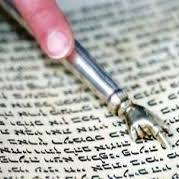
Religion

When Eisav comes as ‘a well-meaning brother’
Rabbi Dani Brett
Ohr Somayach
Cape Town
What is it about Eisav that we fear?
“Save me from the hand of my brother, from the hand of Eisav!”
In this prayer to G-d, we are able to uncover two potential lines of attack. The latter – the “hand of Eisav” is the more obvious one. This is the unmasked, unmistakable Eisav. Confrontational and aggressive, this Eisav endangers our very existence, through physical threat. He is immediately recognisable for who and what he is.
But there is another approach that Eisav sometimes employs – an unsuspecting one. When Yaakov is praying to Hashem to spare him from the hand of Eisav, why does he first ask to be saved from the “hand of my brother”? Eisav is his only brother, so those first words seem unnecessary?
It turns out that Yaakov is asking to be saved from “his brother” on the one hand, and “Eisav” on the other. The latter is clear, as explained above. The former is something quite different. This is Eisav not manifesting in opposition, but in embrace – like nothing less than a brother. And what could be wrong with that?
This is when Eisav is warm and welcoming – into his institutions of learning, establishments of eating, and places of recreation. This is when Eisav lays down his weapons and speaks not of war and hatred, but of melting pots, converging cultures and assimilating identities. This is when Eisav “attacks” us through embrace. This time it’s harder to spot as an affront, but it can be one nonetheless.
The danger of “Eisav” is one of hatred. The danger of “my brother” is one of acceptance, but it can be no less hazardous an encounter, if not even more so.
I am aware of the likely reactions to this idea. Would you prefer the world acting like “Eisav”, rather than like a “brother”? Is a welcoming world such a categorically terrible thing? Does this mean that we should have nothing to do with all that is around us?
The answers are no, no and no.
There is much good around us, and much for which to be thankful. We all interface with aspects of it regularly, and can be enriched through it.
But, we’d be naive and foolish to close our eyes to the dangers inherent within this all. We’d be unwise to fail to see that it is precisely because of these same benefits that the pressures of assimilation and intermarriage are very real.
And even when one does not succumb to those extremes, when one remains committed to and regularly involved in Torah and mitzvoth, there are still powerful dangers – in the way we think, talk, what we see and hear, and in our values and priorities.
So, let’s keep our wits about us and be aware that at times, friendly, useful and potentially valuable aspects of our world today, may contain within them very real dangers on multiple levels.
That’s the Eisav coming at us – unsuspectingly and disguised – as a “well-meaning” brother.




